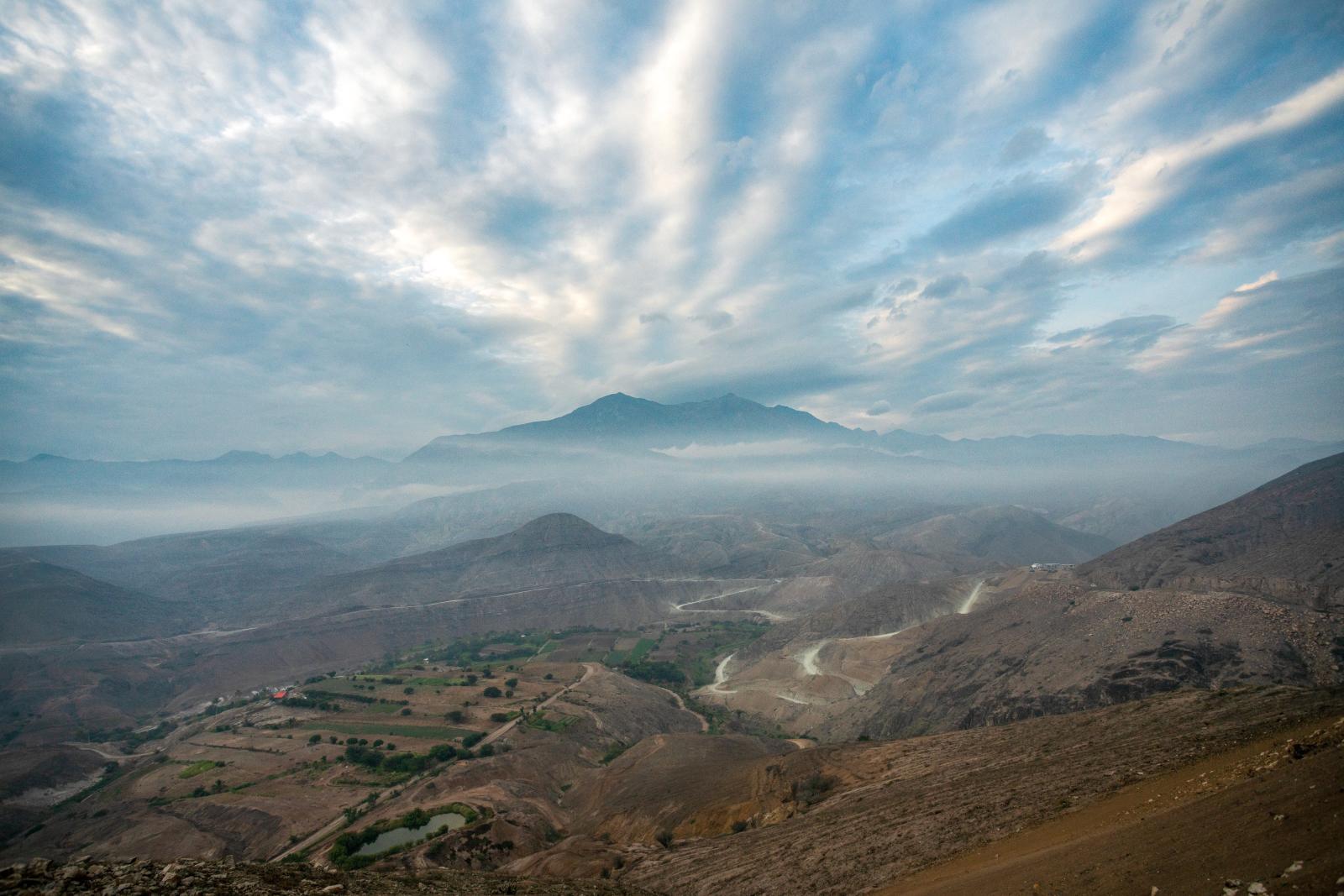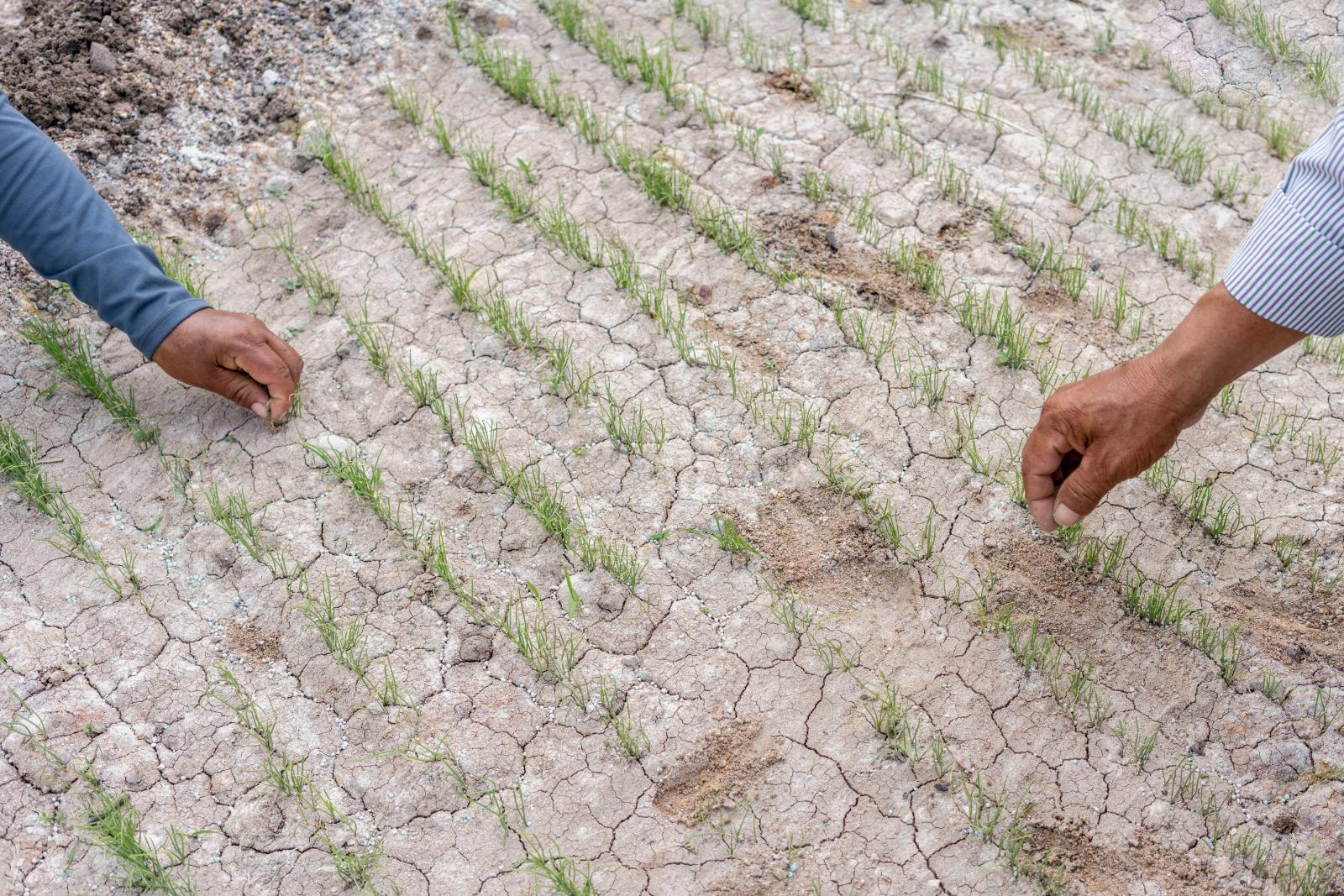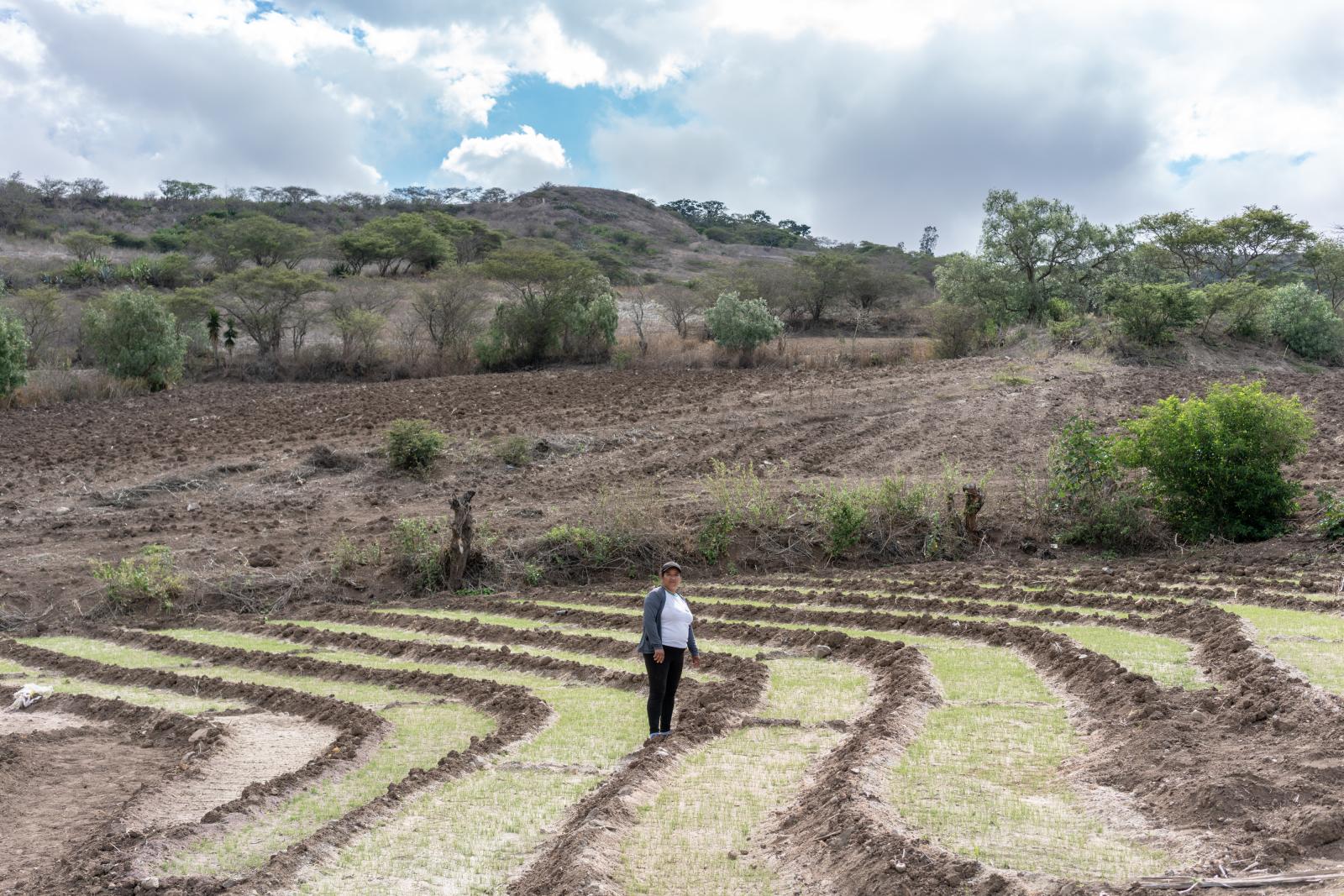These women have beaten the desert. They impact the climate action through their leadership in the design, development and promotion of environmental projects, infrastructure and public policies.
With their ancestral and adapted agricultural techniques, they sow in these arid lands and not only supply their communities, but also sell their products in nearby cities.
Rural and indigenous women have fragile means of subsistence that widely depend on local natural resources, which cannot be guaranteed when facing climate change. The risks linked to this phenomenon affect food and nutrition security and lead to income losses for the communities.
The women portrayed in this project have adapted to climate change in their territories in the following ways:
Strengthening of communal irrigation in drought areas, management of organic manure for moisture retention on the ground, breeding of smaller animals as protein sources, protection of water sources, water harvesting, development of family farms, and use of drought-resistant seeds.
This has all been achieved through a community organization among the residents, strengthened by female empowerment and leadership.






















